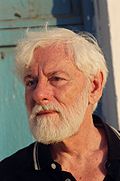His desire to put an end to the social protest movement may well play a role in his decisions.
THIS BRINGS us back to the big question of the protest movement: can one bring about real change, as distinct from forcing some grudging concessions from the government, without becoming a political force?
Can this movement succeed as long as there is a government which has the power to start -- or deepen -- a "security crisis" at any time?
And the related question: can one talk about social justice without talking about peace?
A few days ago, while strolling among the tents on Rothschild Boulevard, I was asked by an internal radio station to give an interview and address the tent-dwellers. I said: "You don't want to talk about peace, because you want to avoid being branded as "leftists." I respect that. But social justice and peace are two sides of the same coin, they cannot be separated. Not only because they are based on the same moral principles, but also because in practice they depend on each other."
When I said that, I could not have imagined how clearly this would be demonstrated only two days later.
REAL CHANGE means replacing this government with a new and very different political set up.
Here and there people in the tents are already talking about a new party. But elections are two years away, and for the time being there is no sign of a real crack in the right-wing coalition that might bring the elections closer. Will the protest be able to keep up its momentum for two whole years?
Israeli governments have yielded in the past to mass demonstrations and public uprisings. The formidable Golda Meir resigned in the face of mass demonstrations blaming her for the omissions that led to the fiasco at the start of the Yom Kippur War. The government coalitions of both Netanyahu and Ehud Barak in the 1990s broke under the pressure of an indignant public opinion.
Can this happen now? In view of the military flare-up this week, it does not look likely. But stranger things have happened between heaven and earth, especially in Israel, the land of limited impossibilities.
(Note: You can view every article as one long page if you sign up as an Advocate Member, or higher).





